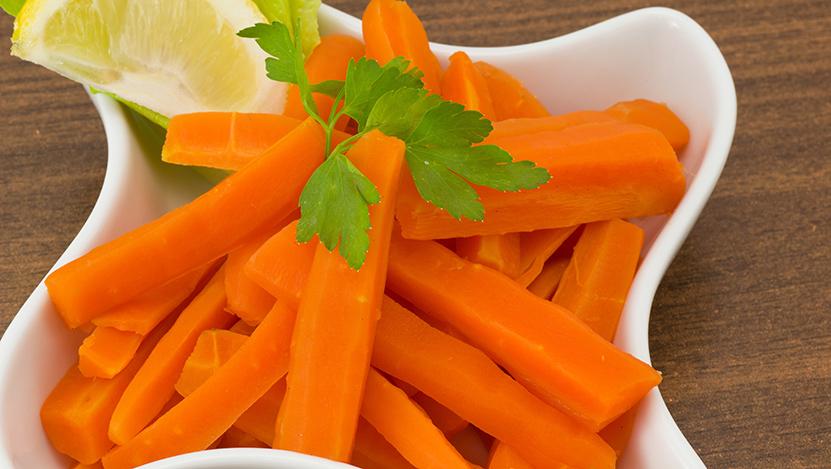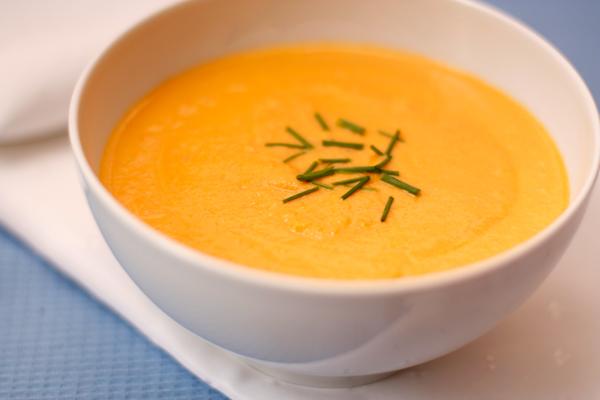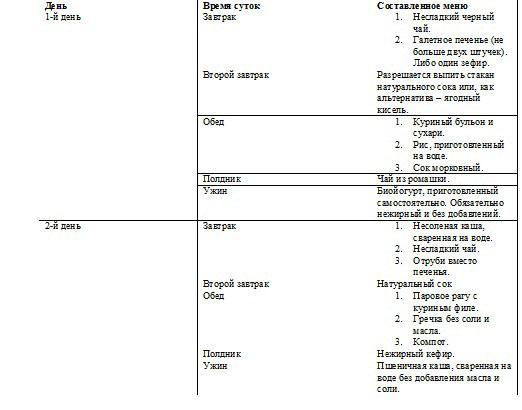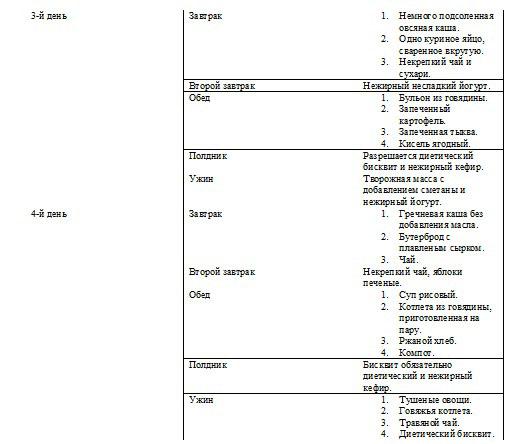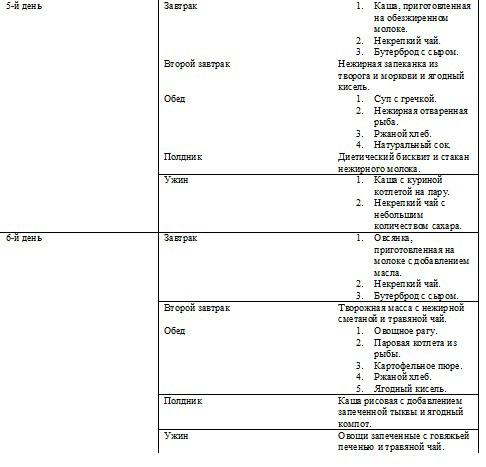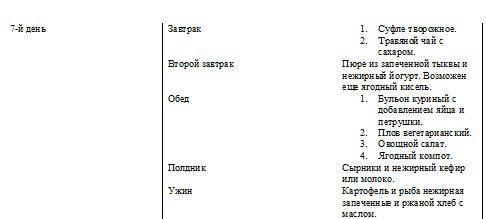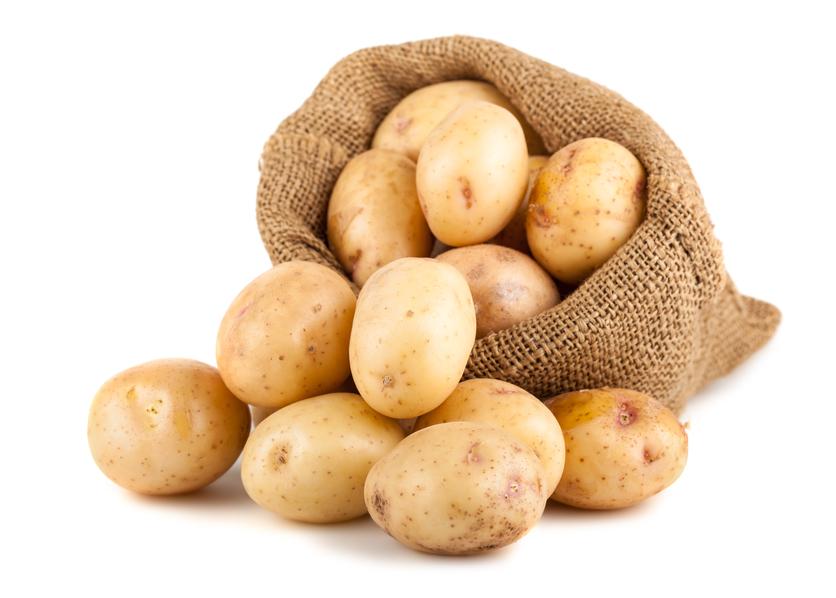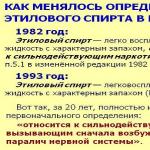The postoperative period always requires recovery measures, especially if after removal of appendicitis. After surgery, you need to prepare for the fact that for some time you will need to follow a special diet that will help you return to normal functioning. Restoration of the gastrointestinal tract is one of the main tasks that the patient faces after surgery.
You should not make up your own diet, as this can aggravate your post-operative health condition. Having studied the anamnesis, only the attending physician will be able to create the correct diet and determine the list of permitted foods. Basically, the duration of the diet is two weeks, but in general it depends on possible complications.
The most difficult time for the patient is 24 hours after the operation, because during this period it is forbidden to consume not only food, but also drink. In this case, you can wet your lips a little with water to prevent drying. Having endured a difficult day, you can begin restorative nutrition, which at a certain stage has its own characteristics - nutrition will differ on the second and third days, in the first week, in the second and third weeks.
In case of infection, the causative agent of the disease or damage, the appendicitis begins to become inflamed and swelling occurs, followed by pain. If acute appendicitis is confirmed during the examination, the patient is sent for an appendectomy. In this way, the inflamed appendage is removed. This type of surgery is safe and allows the body to quickly recover. Removal occurs through puncture using specially designed instruments.
There is no clear opinion regarding the need for appendicitis, so two versions of its functionality have been defined:
- Remained in the role of a rudiment.
- It is part of the cecum (appendage), which takes part in the formation of immunity in the housing and communal services and prevents the activation of pathogenic bacteria.
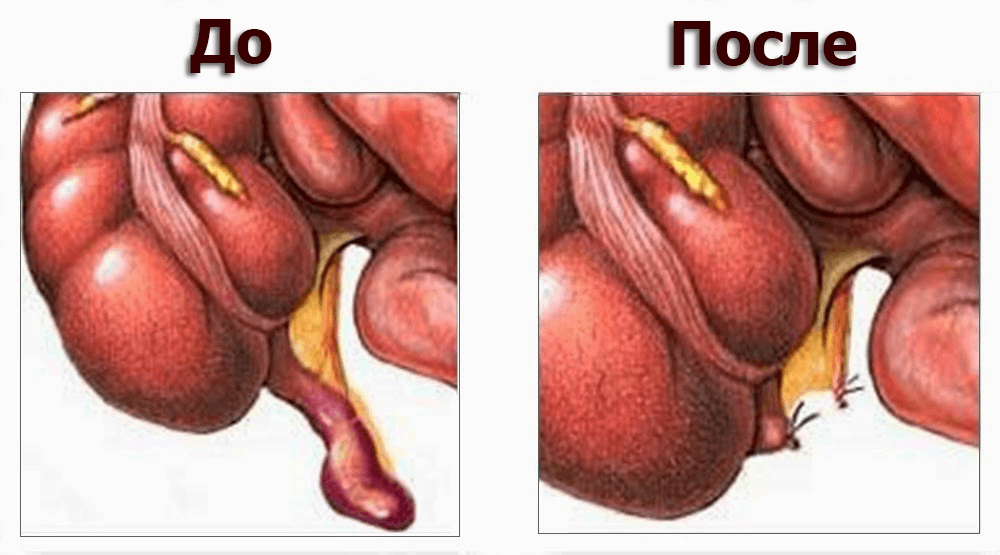
After appendicitis is removed, a person feels virtually no changes in well-being. The main thing is to promptly seek medical help if acute cutting pain occurs. After all, untimely intervention can lead to a serious complication - peritonitis. It is also very important to follow a diet for a month after the operation. The doctor must consult the patient about the specific diet during the recovery period. Special nutrition is required in order to create favorable conditions for tissue regeneration. Without the use of diet therapy, the recovery period is significantly delayed.
Reference! Peritonitis is a serious illness characterized by pronounced inflammation of the layers of the peritoneum (namely visceral and parietal).
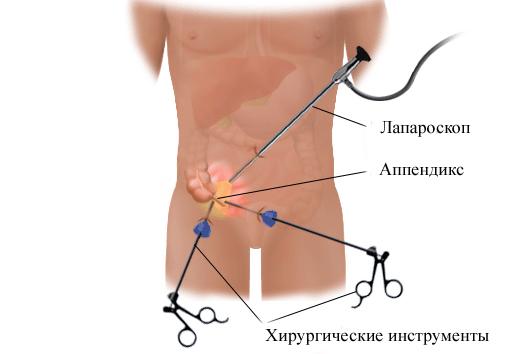
Possible complications
If, during an exacerbation of appendicitis, the patient was not provided with timely surgical treatment, then various complications may occur.
| What to expect? | Brief description of the complication |
|---|---|
| Appendix rupture | Peritonitis is how medicine defines a rupture, which is accompanied by inflammation. This process poses a threat to human life, so urgent surgical intervention is required. |
| Phlegmonous type of appendicitis | The inflamed appendage becomes covered inside and outside with purulent plaque. The danger is that fluid with the presence of pus may accumulate in the abdominal cavity |
| Gangrenous inflammation | Blockage of the vascular network may occur in the appendix, which leads to the development of peritonitis |
The first day after surgery
On the first day, the patient recovers from anesthesia, so a feeling of nausea occurs, so it is possible that there will be a complete absence of appetite, and there is also the possibility of complications in which it is forbidden not only to eat, but also to drink, as mentioned above.
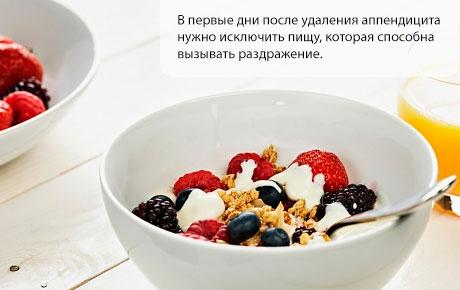
If the patient does not experience any complications on the first day of the postoperative period, and his health is stable, then the doctor may allow him to eat liquid food. Eating a small amount of food is required to restore the body's strength.
After 24 hours it is allowed:
- The sweet tea is not strong.
- Berry compote.
- Kissel.
- Water.
These liquids are the only approved product after removal of appendicitis. Eating other food is strictly prohibited even with excellent appetite (practically never occurs). Then the doctor observes the dynamics of restoration of the digestive system and, based on it, determines the diet for further nutrition. You can watch the surgeon’s commentary on special nutrition in the video.
Video - What should be the diet after appendicitis removal
The first three days of the postoperative period
A variety of foods are allowed only in the absence of fever and other signs of complications. It must be remembered that the first three days are the most difficult, so you need to approach nutrition with extreme caution. On the second and third days you can:
- Chicken broth (it must be low-fat).
- Rice (only boiled in water and without salt).
- Liquid puree from pumpkin or zucchini.
- Low-fat yogurt, it is best if it is home-made (no flavorings or sugar).
- Chicken fillet (boiled in pureed form).
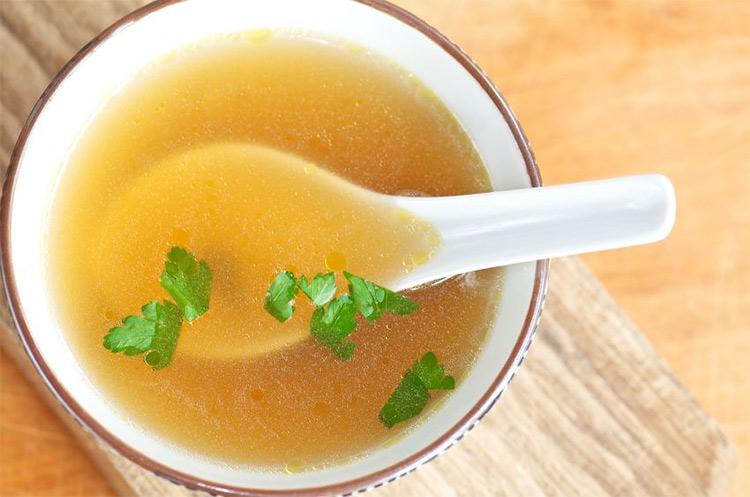
Note! Meals must be eaten in small portions up to six times a day.
Nutrition after five days of postoperative nutrition
On the fifth day, you can add fermented milk products to the porridge menu. They are easily digestible and have a positive effect on the stomach. The basis of fermented milk products should be homemade yoghurts with bifidobacteria, low-fat kefir, and cottage cheese (must be unsweetened).
The patient will have bed rest for a long period of time, so the possibility of constipation cannot be ruled out. Some medications also cause a similar problem. To prevent constipation, you should consume as many fiber-rich foods as possible. It is found in the following products:
- Baked apples.
- Rosehip decoction.
- Boiled carrots.
Boiled carrots are one of the allowed foods during the postoperative period
Advice! Before making changes to the postoperative menu, it is recommended to consult with a leading physician in order to avoid complications.
To quickly restore the body and digestive system, beta-carotene is needed. It is found in large quantities in pumpkin. Other useful elements contained in this vegetable can speed up metabolic processes, have a positive effect on blood clotting, and increase the level of absorption of products. During the diet, it is recommended to consume pumpkin in the form of puree soup or, alternatively, in the form of porridge.
Seven days after removal
After the first three days, the patient can be switched to fresh foods in liquid form, which are cooked exclusively by steaming. In this way, stress on the gastrointestinal tract can be avoided. The basis of the diet will be lean meat; it is best to give preference to chicken, since this is one of the types of dietary meat. In addition, chicken fillet is easily digestible and does not weigh on the stomach.
Also very important in the first postoperative week are puree soups. It is best to prepare such dishes from boiled zucchini, pumpkin, beets, carrots, and potatoes. Rice is the main cereal. This product is excellent for dietary nutrition and contains vitamin C and A, which actively contribute to the rapid recovery of the body and the regeneration of internal tissues.
Cream soups are one of the main dishes after appendicitis surgery
Advice! To properly prepare the puree soup, you should boil the vegetables. When ready, grind the vegetables in a blender until they become mushy. To improve the digestive process, add greens to the soup. Under no circumstances should you add salt or oil.
Fluid intake is very important for digestion, so you should drink plenty of fluids in the first week after surgery. At the same time, you are allowed to drink natural homemade juices, berry compotes, herbal teas, and purified water. If you don’t have the opportunity to prepare juice yourself, then you should not buy them in the store, since the content of flavorings and preservatives will negatively affect digestion. In this case, it is best to limit yourself to drinking water throughout the day in the amount of one and a half liters.
Note! Depending on the time passed after appendicitis is removed, the menu will expand.
Video - Super food after surgery
Possible menu for one week
It is necessary to adhere to certain nutritional principles that will promote rapid wound regeneration and help prevent suture dehiscence. Therefore you should adhere to:
- Eating food throughout the day should occur at least six times in small portions.
- The first week after surgery should be based solely on liquid food. It is desirable that it be ground.
- Drinking should consist of juices and compotes (note that they should not be sour).
- The diet should exclude foods with a lot of fat. Therefore, chicken and veal are allowed among meat products.
- The first days of nutrition should exclude butter. After some time, it can be added to porridge in small quantities.
- During the month, all fried foods are strictly prohibited.
- Soups should be prepared without any frying.
- All products should be cooked only by steaming.
- Temporarily exclude from the diet foods that negatively affect the intestinal mucosa - spices, pepper, salt.
- Alcohol and coffee are prohibited.
- The tea should not be strong, preferably green.
- Consume fruits and vegetables exclusively in grated form.
- Potatoes should be removed from the menu for the time being.
- All fermented milk products consumed must be non-fat.
- To avoid fermentation, do not eat flour products.
- Avoid carbonated drinks.
- It is allowed to prepare dishes from legumes only after a month of a strict diet.
Thus, it is possible to normalize the functioning of the digestive tract and quickly restore the body weakened after surgery.
Despite the compiled menu in the postoperative period, it is necessary to pay attention to the fact that the diet contains as many vitamins as possible for the rapid restoration of the digestive system and the body as a whole.

